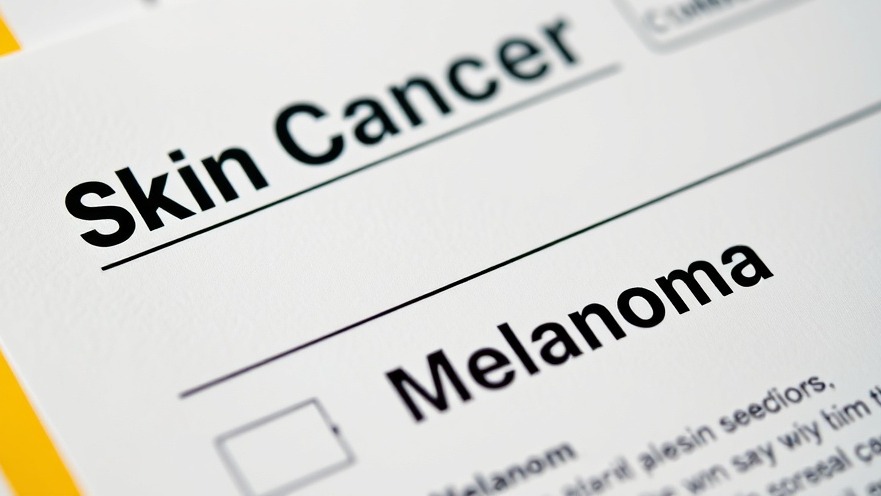
Revolutionizing Hidradenitis Suppurativa Treatment with New Biologics
The landscape of Hidradenitis Suppurativa (HS) treatment is undergoing significant transformation with the introduction of innovative biologics aimed at improving the quality of life for those affected by this chronic inflammatory skin condition. These medications target the underlying immune pathways contributing to HS, offering new hope to patients who have not responded adequately to traditional therapies.
Understanding Hidradenitis Suppurativa and the Role of Biologics
Hidradenitis Suppurativa is a painful condition characterized by the formation of abscesses and nodules, often in areas such as the armpits and groin. Treatment options have historically been limited, with many patients experiencing resistance to conventional treatments. The advent of biologics—targeted therapies that modulate the immune system—represents a promising shift in management approaches.
Examining the Findings: Bimekizumab's Impact
Bimekizumab, a dual inhibitor of interleukin-17A and interleukin-17F, showcases how biologics are reshaping HS treatment paradigms. In a recent Phase 2 study, it was found that 50% of patients receiving Bimekizumab experienced a significant reduction in abscess count compared to just 20% in the placebo cohort. While still in early stages, these results highlight Bimekizumab's potential as a key therapeutic option for moderate to severe HS.
Guselkumab's Promising Efficacy in Hidradenitis Suppurativa
Similarly, Guselkumab, an interleukin-23 inhibitor, has emerged as another contender in the biologics arena. In a Phase 2 clinical study, over half of the patients treated with Guselkumab achieved a notable clinical response at Week 16, marking a significant difference compared to those on placebo. The potential for Guselkumab to become a staple in HS treatment lies in its ability to effectively manage symptoms, particularly for patients who have seen little success with existing therapies.
Brodalumab: Initial Insights from Clinical Research
Brodalumab, another biologic targeting the IL-17 receptor, faced a smaller-scale Phase 2 open-label study. Despite the small sample size of just 10 patients, partial responses observed in 50% of the participants indicate early promise. These results suggest that Brodalumab could be a viable addition to the pharmacological arsenal against HS, although more extensive research is warranted.
The Broader Implications of Biologics in Dermatology
The emerging data on these biologics signifies a paradigm shift not only for HS treatment but also for dermatology as a whole. As the understanding of chronic skin conditions deepens, targeted therapies could redefine patient experiences and treatment outcomes. The potential of biologics to reduce inflammation, improve skin integrity, and promote healing reaffirms the need for continuous research and the integration of clinical findings into practice.
Future Opportunities and Challenges Ahead
Looking ahead, ongoing clinical trials, including Phase 3 studies for Bimekizumab and Guselkumab, will be critical to confirm their efficacy and safety across larger populations. Addressing the needs of patients unresponsive to conventional treatments is vital, and these biologics could pave the way for a new era of personalized medicine in dermatology.
Integrating Health Practices for Clear Skin
Alongside pharmacological interventions, adopting a holistic approach can significantly enhance skin health. Diet plays a crucial role; incorporating a clear skin diet rich in fruits and vegetables supports immune function and overall skin vitality. Certain herbs, such as chamomile and aloe vera, possess anti-inflammatory properties that can assist in managing skin irritations and promoting healing when integrated into topical treatments or oral supplements.
Exploring the Connection Between Stress and Skin Conditions
Understanding the psychosocial factors influencing HS is equally vital. Stress management techniques, such as mindfulness and yoga, not only improve emotional well-being but can also have a profound positive impact on skin conditions. Prioritizing mental health as part of a comprehensive treatment strategy is essential for long-term health.
As treatments evolve, so too should our approach towards managing Hidradenitis Suppurativa. Recognizing the interplay of medication, diet, and mental health will empower patients and healthcare providers alike to achieve better outcomes.
To take charge of your skin health, explore options like incorporating herbs and turning to stress reduction practices. Beautiful skin is not just a dream—it's an achievable goal. Begin your journey towards healthy skin by consulting with your healthcare provider about these emerging therapies today!
 Add Row
Add Row  Add
Add 




 Add Row
Add Row  Add
Add 

Write A Comment